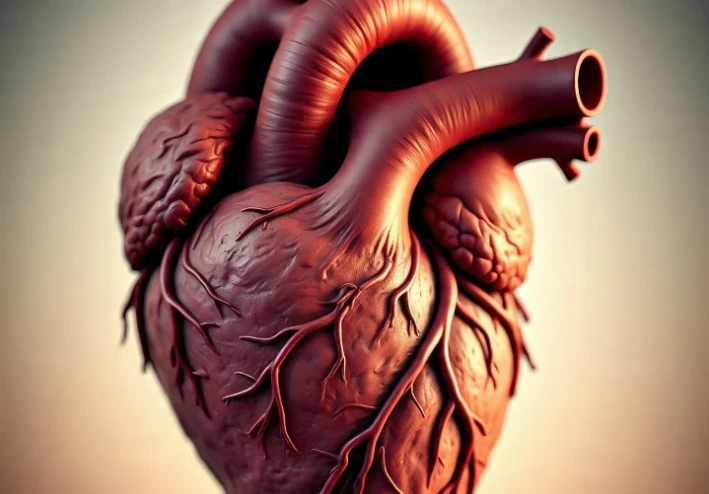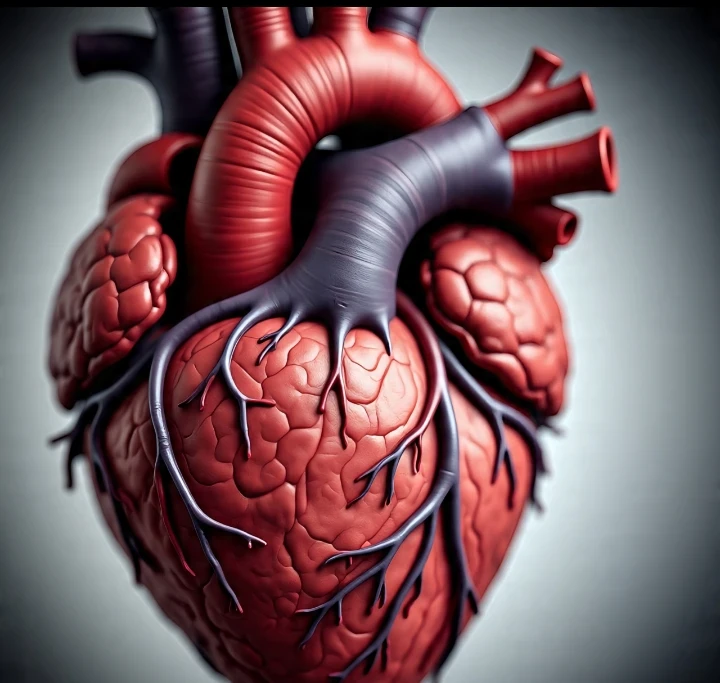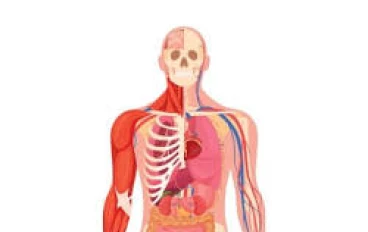
The comprehensive guide to heart health
Heart Health: A Comprehensive Guide to Protecting Your Most Vital Organ
The human heart is more than just a muscle that pumps blood—it is the core of life itself. Every beat supplies oxygen and nutrients to the body’s tissues, while also carrying away waste products. Despite its resilience, the heart is highly vulnerable to modern lifestyle factors such as poor diet, stress, lack of exercise, and smoking. According to the World Health Organization (WHO), cardiovascular diseases (CVDs) remain the leading cause of death worldwide, responsible for an estimated 17.9 million lives lost each year. For this reason, maintaining heart health is not just a medical concern but a lifelong priority for anyone who wishes to live well and age gracefully.
This article explores the importance of heart health, the common risks that threaten it, and evidence-based strategies to protect and strengthen this vital organ.
The Importance of Heart Health
The heart functions as the central engine of the body, beating approximately 100,000 times per day and pushing around 7,500 liters of blood through an intricate network of arteries, veins, and capillaries. Because every organ depends on this constant circulation, even minor damage to the heart can have widespread consequences.
A healthy heart supports not only physical well-being but also mental and emotional balance. Studies show that cardiovascular health is closely linked to brain function, sleep quality, energy levels, and even mood regulation. On the other hand, poor heart health can lead to fatigue, reduced cognitive function, depression, and a lower quality of life.
Major Risk Factors for Heart Disease
Heart disease rarely develops overnight. Instead, it is the result of multiple risk factors—some within our control and others determined by genetics.
Unhealthy Diet
Diets high in saturated fats, trans fats, cholesterol, and sodium contribute to high blood pressure, obesity, and plaque buildup in arteries. Consuming too much sugar also increases the risk of type 2 diabetes, which is strongly associated with cardiovascular disease.
Physical Inactivity
Sedentary lifestyles weaken the cardiovascular system. Regular exercise strengthens the heart muscle, improves circulation, and helps maintain healthy cholesterol and blood pressure levels.
Smoking and Alcohol
Smoking damages blood vessels, reduces oxygen in the blood, and accelerates plaque formation. Excessive alcohol consumption can raise blood pressure and damage the heart muscle over time.
Stress
Chronic stress raises levels of cortisol and adrenaline, which can lead to high blood pressure, inflammation, and unhealthy coping behaviors such as overeating or smoking.
Genetics and Family History
While lifestyle factors are critical, some people are predisposed to heart disease due to family history, inherited high cholesterol, or other genetic conditions.
Other Health Conditions
Diabetes, obesity, and hypertension are among the strongest predictors of heart disease. If not properly managed, these conditions significantly increase the risk of heart attack and stroke.
Signs and Symptoms to Watch For
Heart disease can sometimes remain “silent” until a serious event occurs. However, there are warning signs that should never be ignored:
Chest pain, pressure, or discomfort
Shortness of breath during activity or at rest
Palpitations or irregular heartbeat
Swelling in legs, ankles, or feet
Unexplained fatigue or weakness
Dizziness or fainting
Early detection is critical. Anyone experiencing these symptoms should seek medical attention immediately.
Strategies for Maintaining Heart Health
Protecting the heart requires a proactive approach that combines lifestyle changes, regular check-ups, and mindful daily habits. Below are evidence-based strategies to promote cardiovascular health:
1. Adopt a Heart-Healthy Diet
Nutrition plays a pivotal role in preventing heart disease. Experts recommend:
Eating more fruits and vegetables: Rich in fiber, antioxidants, and vitamins.
Choosing whole grains: Brown rice, oats, quinoa, and whole wheat.
Including healthy fats: Olive oil, nuts, seeds, and omega-3 fatty acids from fish.
Reducing sodium: Excess salt raises blood pressure.
Limiting processed foods: Avoid packaged snacks, sugary drinks, and fast food.
The Mediterranean diet, which emphasizes fresh produce, fish, olive oil, and nuts, has been consistently linked to better heart outcomes.
2. Stay Physically Active
Exercise is one of the most powerful tools for heart health. The American Heart Association (AHA) recommends at least 150 minutes of moderate-intensity exercise per week. Activities such as brisk walking, cycling, swimming, or dancing all strengthen the heart. Resistance training, such as weightlifting, also improves metabolism and muscle health, which indirectly benefits the cardiovascular system.
3. Manage Stress
Chronic stress not only affects mental health but also puts strain on the heart. Stress-reduction techniques include:
Deep breathing and meditation
Yoga or tai chi
Spending time in nature
Practicing gratitude or mindfulness
Talking with supportive friends or therapists
4. Get Regular Check-Ups
Blood pressure, cholesterol, and blood sugar levels should be checked regularly. Detecting problems early allows for interventions before they become life-threatening.
5. Prioritize Quality Sleep
Adults should aim for 7–9 hours of sleep per night. Poor sleep is associated with obesity, diabetes, hypertension, and increased risk of heart disease. Creating a regular bedtime routine and avoiding screens before bed can improve sleep quality.
6. Avoid Smoking and Limit Alcohol
Quitting smoking is one of the single most important steps for heart health. Even occasional smoking damages arteries. Alcohol should be consumed in moderation—no more than one drink per day for women and two for men.
The Role of Medical Advances
Medical research has provided powerful tools to diagnose, prevent, and treat heart disease. Innovations include:
Non-invasive imaging like CT scans and echocardiography.
Medications such as statins, beta-blockers, and ACE inhibitors.
Minimally invasive procedures like angioplasty and stenting.
Surgical options including bypass surgery and heart transplants.
Equally important are advances in wearable technology—smartwatches and fitness trackers now allow individuals to monitor heart rate, detect irregular rhythms, and encourage healthy behaviors.
Heart Health Across the Lifespan
Heart care is not just for older adults; it should begin in childhood. Teaching children healthy eating, encouraging active play, and limiting screen time lay the foundation for lifelong cardiovascular health.
For young adults, avoiding smoking, limiting alcohol, and maintaining fitness are essential. Middle-aged adults should be especially vigilant about cholesterol and blood pressure, while seniors benefit from regular activity to maintain independence and reduce risk of complications.
Conclusion
The heart is more than a pump—it is the very rhythm of life. Caring for it requires consistent effort and conscious choices, but the rewards are immeasurable: longer life, more energy, and better overall well-being.
By adopting a healthy diet, staying active, managing stress, avoiding harmful habits, and keeping up with medical check-ups, anyone can dramatically reduce their risk of heart disease. While genetics and age play roles we cannot control, lifestyle changes are within everyone’s reach.
In the end, protecting your heart is not just about preventing disease—it is about nurturing vitality, resilience, and joy throughout your life. Every beat counts, and every choice you make shapes the strength of your heart.
































